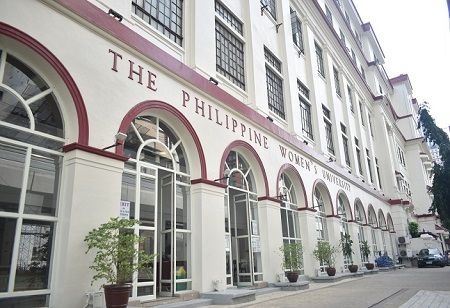Recognizing the vital link between education and the health sector, Unilab Foundation (ULF) is spearheading discussions on this connection through a potential academic partnership with the Philippine Women’s University (PWU). ULF and PWU are exploring opportunities for cross-border collaboration on programs and local research initiatives, focusing on merging academic and industry efforts.
“Our model focuses on partnering with existing colleges and universities to ensure that industry is not only linked but integrated with the academe,” said Unilab Foundation executive director Jose Maria Ochave. “I was pleasantly surprised by the number of PWU’s healthcare-related courses, which is perfect for developing our Human Resources for Health”.
PWU's health sciences programs include Medical Technology, Nursing, Pharmacy, and Nutrition and Dietetics. The university also offers a wide array of programs in Arts and Sciences, Business, Music, and Fine Arts and Design. Ochave notes that with the country's progress toward Universal Health Coverage (UHC), there is significant potential for PWU, in partnership with the Unilab Foundation, to make a substantial impact in training global health personnel and officials.
The Philippine healthcare sector faces significant and longstanding gaps in its Human Resources for Health. Recently, Health Secretary Ted Herbosa highlighted a shortage of 190,000 nurses in the country. This issue is compounded by high attrition rates and low licensure exam passing rates among students, indicating problems with education and production. Furthermore, many Filipino healthcare workers opt to migrate and provide health services abroad.
Dr. Kenneth Hartigan-Go, director of the Unilab Foundation’s Health Sector Skills Council (HSSC) project, highlights several factors contributing to these challenges. “There is a significant information gap about job availability”, he observes. Hartigan-Go stresses the need for a comprehensive, whole-of-society approach and urgent collaboration between the education and health sectors to address the ongoing shortage of essential health workers in the country.
“There’s a provision in the Universal Health Care Law requiring the DOH to develop a Health Human Resource Master Plan, which encompasses scholarships and training programs”, said Unilab Center for Health Policy (UCHP) program director Ruben Basa. However, Basa acknowledges that there is still a long way to go in addressing HRH issues. The lack of healthcare workers in the country remains a significant barrier to achieving the goals of UHC.
The difficulties encountered in the healthcare sector, especially regarding the workforce, are deeply felt within educational institutions. These institutions struggle to produce a consistent stream of skilled and well-prepared healthcare professionals amidst limited resources and changing demands. The gap between academic training and practical application highlights the necessity of revising educational curricula to better align with the real-world needs of the healthcare system.
PWU, with its focus on the holistic development of students and preparing them for their careers, recognizes this need and is already making significant efforts. For instance, they immerse their students, particularly in health courses, in community settings to expose them to practical experience. Additionally, they advocate for versatility in their students’ skills, as demonstrated by their strategic clustering of competencies in their Nursing program.
With this alignment and mutual focus on strengthening the healthcare workforce, the Unilab Foundation and PWU are engaging in discussions and exploring potential collaboration opportunities. “Especially after the pandemic, we realized that collaboration is truly key to fostering and building upon the individual strengths of institutions”, expressed Marco Benitez, president of PWU.

